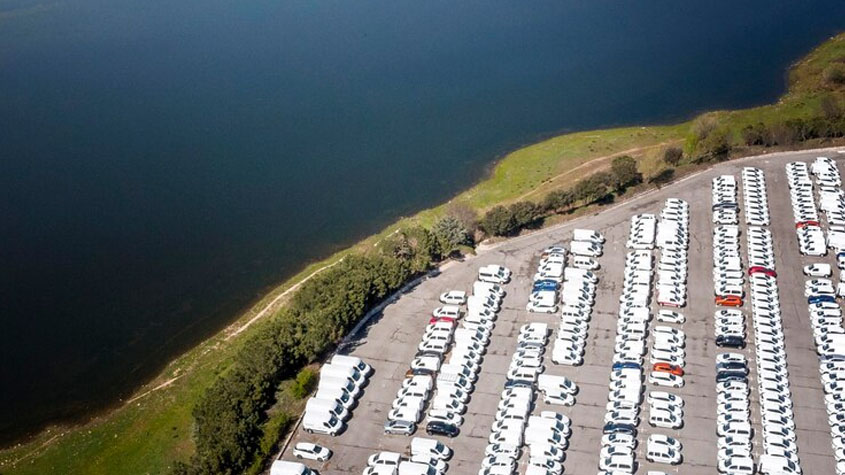
The automotive industry plays a significant role in global economic growth, but it also generates substantial amounts of wastewater containing pollutants that can harm the environment if not properly treated. To address this issue, the implementation of advanced wastewater treatment technologies, such as submerged flat sheet membrane cassettes, has become crucial. This article aims to explore the role of submerged flat sheet membrane cassettes in automotive industry wastewater treatment, highlighting their benefits, applications, and contributions to sustainable water management.
1. The Automotive Industry’s Wastewater Challenge:
The automotive industry relies on various manufacturing processes that generate wastewater contaminated with heavy metals, oils, solvents, and other pollutants. These pollutants pose a significant risk to water bodies and ecosystems if discharged untreated. Therefore, effective wastewater treatment systems are essential to ensure compliance with environmental regulations and minimize the industry’s ecological footprint.
2. Introduction to Submerged Flat Sheet Membrane Cassettes:
Submerged flat sheet membrane cassettes are advanced filtration systems that utilize a highly efficient membrane technology to separate suspended solids, bacteria, and other contaminants from wastewater. These cassettes consist of thin, flat membranes with microscopic pores that allow water molecules to pass through while blocking the passage of pollutants. The submerged configuration ensures continuous filtration, maximizing treatment efficiency.
3. Benefits of Submerged Flat Sheet Membrane Cassettes:
a) Enhanced Filtration Efficiency: Submerged flat sheet membrane cassettes offer a higher filtration efficiency compared to conventional treatment methods. The membranes’ small pore size allows for the removal of suspended solids, bacteria, and even certain viruses, resulting in high-quality treated water.
b) Compact Design: The compact design of submerged flat sheet membrane cassettes enables their installation in limited space, making them suitable for automotive industry facilities with space constraints.
c) Improved Water Recovery: Submerged flat sheet membrane cassettes enable the recovery of a significant portion of treated water, reducing water consumption and associated costs.
d) Reduced Chemical Usage: The advanced filtration capabilities of submerged flat sheet membrane cassettes reduce the need for chemical additives, minimizing the environmental impact and operational costs.
4. Applications of Submerged Flat Sheet Membrane Cassettes in Automotive Industry Wastewater Treatment:
a) Paint Shop Wastewater Treatment: Automotive paint shops generate wastewater containing various pollutants, including heavy metals and organic compounds. Submerged flat sheet membrane cassettes effectively remove these contaminants, allowing for the safe discharge or reuse of treated water.
b) Metalworking Fluids Treatment: Metalworking processes in the automotive industry often involve the use of cutting fluids and lubricants, resulting in wastewater contaminated with oils, emulsions, and suspended solids. Submerged flat sheet membrane cassettes efficiently separate these contaminants, ensuring compliance with discharge regulations and facilitating water reuse.
c) Vehicle Washing Wastewater Treatment: Automotive manufacturing facilities and service centers often require vehicle washing operations, which generate wastewater containing detergents, oils, and dirt particles. Submerged flat sheet membrane cassettes effectively remove these pollutants, enabling the recycling of water for future wash cycles.
5. Contribution to Sustainable Water Management:
The implementation of submerged flat sheet membrane cassettes in automotive industry wastewater treatment aligns with the principles of sustainable water management. By producing high-quality treated water, these systems contribute to water conservation efforts, reduce the strain on freshwater resources, and minimize the industry’s impact on the environment. Furthermore, the recovery of valuable resources, such as metals or oils, from the concentrated sludge generated during membrane filtration, adds to the overall sustainability of the treatment process.
Conclusion:
The automotive industry faces significant challenges in managing the wastewater generated by its manufacturing processes. However, the adoption of advanced wastewater treatment technologies, such as submerged flat sheet membrane cassettes, offers a viable solution. These systems provide enhanced filtration efficiency, compact design, improved water recovery, and reduced chemical usage. Through their applications in various wastewater treatment processes within the automotive industry, submerged flat sheet membrane cassettes contribute to sustainable water management, ensuring comp
About Jiangsu Peier membrane
iangsu Peier membrane corp.,Ltd(Stock Code: 836744) was established in 2007 with a registered capital of 48 million Yuan, referred to as “Peier membrane industry”.
It is a high-tech enterprise focusing on the R&D, production, manufacturing and service of MBR flat sheet membrane products. Its Peier Product category as below:
- Flat Sheet Membrane Element
- Flat Sheet Membrane Element-Single Nozzle
- Flat Sheet Membrane Element-Double Nozzle
- Flat Sheet Membrane Element-3D Soft Support
- Flat Sheet Membrane Element-Renovated Membrane
- Flat Sheet Membrane Module
- Flat Sheet Membrane Module-Module-Single Nozzle
- Flat Sheet Membrane Module-Module-Double Nozzle
- Flat Sheet Membrane Module-2S(Double Deck)
- Flat Sheet Membrane Module-3S(High Flux)
- Flat Sheet Membrane Module-Mini Module
- MBR System
- MBR System-Laboratory Test Equipment
- MBR System-Pilot Equipment
- MBR System-Package System
Peier membrane always adheres to R&D and cooperation with well-known universities at home and abroad, such as Tsinghua University, Sydney University, Nanjing University of technology, Changzhou University and Jiangnan University.
It is the editor in chief of the national industry standard HY/T252-2018 “submerged flat membrane element for water treatment”.
At present, it has 7 invention patents, 56 new utility patents, 4 software works and 1 appearance patent.